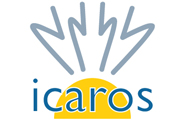
The European Research Council (ERC) rewards the University of Naples Federico II by awarding a Synergy Grant, its first one, for EndoTheranostics ‒ Multi-sensor Eversion Robot Towards Intelligent Endoscopic Diagnosis and Therapy.
Thanks to an Italian-English research synergy, the project proposes a radically innovative and transformative approach to colonoscopy to fight one of the world's three most common cancers, colorectal cancer. The recipient of the prestigious grant for the University of Naples Federico II, in collaboration with the CREATE Consortium, Bruno Siciliano, is professor of robotics in the Department of Electrical Engineering and Information Technology, coordinator of the PRISMA Lab, and a former Advanced Grant recipient in 2013. The excellence team of which he is part, benefits from the clinical experience and scientific contribution of Alberto Arezzo, Department of Surgical Sciences, University of Turin, and the technological experience and scientific contribution of Kaspar Althoefer, School of Engineering and Materials Science, Queen Mary University of London, and Sébastien Ourselin, School of Biomedical Engineering & Imaging Sciences, King's College London.
Six years and ten million euros in total to develop a pneumatically actuated, sensorized soft robot capable of extending into the colon, identifying the environment through multi-sensory image and data acquisition, cleaning cavities in preparation of colonoscopy, and diagnosis and treatment of pre-cancerous lesions, stage 0 and 1 polyps, through a robotic capsule equipped with microsurgical tools for on-site therapy.
Fifty percent of people with colorectal cancer die due to late diagnosis, and screening coverage due to the type of examination is still low because most people perceive colonoscopy as uncomfortable, undignified, and painful. The instruments currently used are not completely efficient and involve risks. Therefore, EndoTheranostics is born from a precise clinical need to drastically reduce the important cancer mortality numbers, thanks to a new "theranostic" technique of diagnosis and treatment of lesions at an early stage during colonoscopy, avoiding the need to resort after the diagnostic phase to surgery along with radio- or chemo-therapy for removal of polyps at an advanced stage.
Prof. Bruno Siciliano along with Fanny Ficuciello, associate professor of medical robotics and head of research in surgical robotics at the ICAROS center, and Prof. Luigi Villani, professor of automatic control, will deal with control strategies in the phase of driving the eversion robot into the colon cavities, intervention of the mini-robot equipped with tools for dissection and suturing wherever lesions are detected, and finally the study of control interfaces for the surgeon to interact with these robotic components.
"In terms of research, the project represents an exciting futuristic challenge because of the potential spin-offs in other medical applications," says Prof. Ficuciello. "We will use all our expertise on autonomous and semiautonomous control strategies acquired in surgery through the da Vinci Research Kit robot, an open research platform very similar to the robot used in operating rooms, on which we have been experimenting several control algorithms for some time. We will apply our expertise on control in human‒robot interaction to ensure efficiency and safety of a robotic capsule travelling inside the human body, as well as on automatic suturing we are developing through "deep reinforcement learning" techniques to expand the horizons of classical control strategies. We will also exploit our knowledge on the design of surgical instruments."
Prof. Siciliano: "I am thrilled to team up with a team of outstanding researchers on a project like EndoTheranostics that will usher in a new era for colonoscopic screening, advancing the frontiers of medical imaging and robotics. Downstream of laboratory testing in animals and cadavers, clinical trials with volunteers are planned in the final year of the project. The ambitious goal on a time horizon of ten years from now is to develop and certify a revolutionary robotic technique that will help increase the percentage of at-risk patients who decide to undergo colonoscopy, thereby contributing to a significant reduction of the mortality rate of colorectal cancer."
The EndoTheranostics project is one of 37 projects selected for funding from 395 proposals in the ERC Synergy 2023 call, the only one to be funded on robotics.
